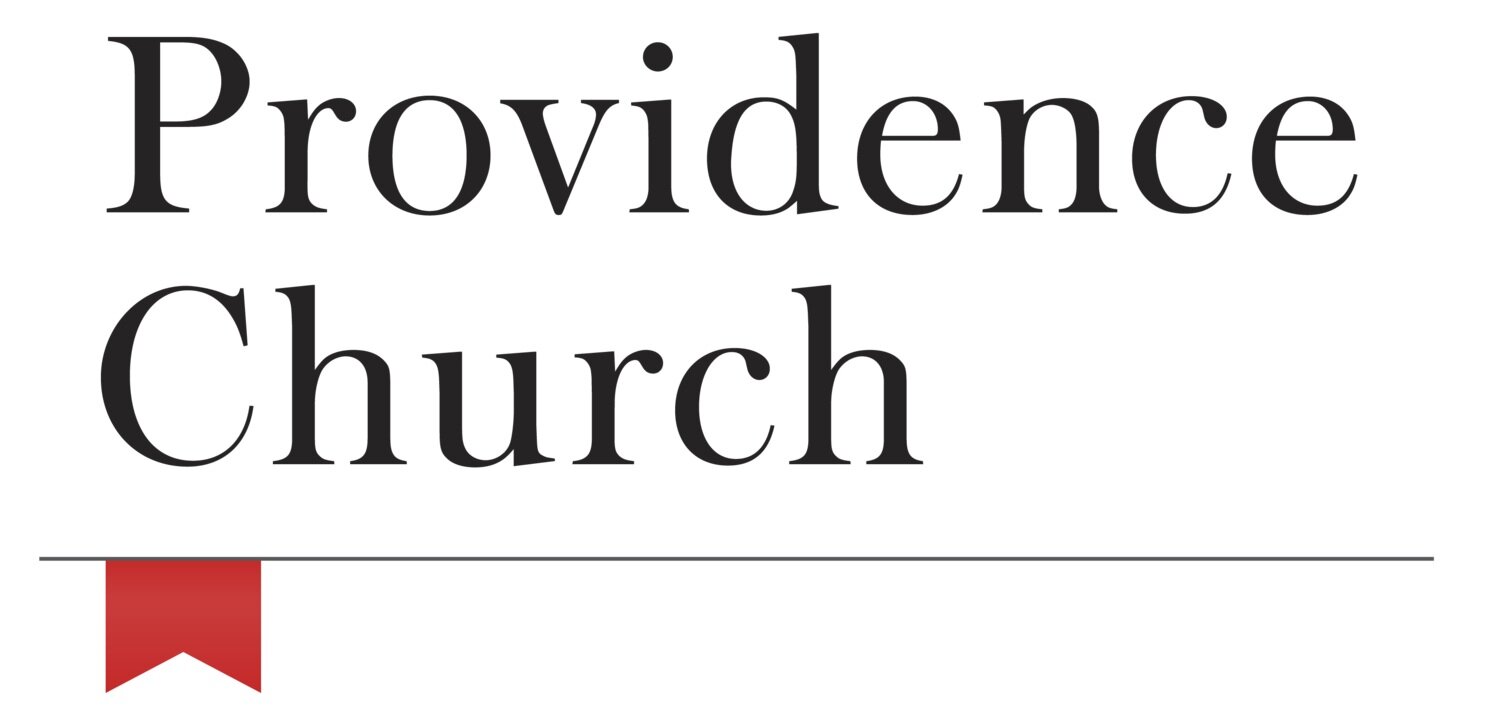
FAQs
Want more details about Providence Church? You’re in the right place!
How do we know there is a God and why does it matter?
Much can be said about this question, but our faith in the God of the Bible is ultimately grounded on the historical fact that the man Jesus died and rose from the dead. This blatantly supernatural act has many eyewitness testimonies that survive to this day and comprise the books of the New Testament.
In fact, the New Testament itself affirms the foolishness of Christianity if Jesus Christ did not rise from the dead: "And if Christ has not been raised, then our preaching is in vain and your faith is in vain" and "If in Christ we have hope in this life only, we are of all people most to be pitied" (1 Corinthians 15:14, 19). But if Jesus really has been raised from the dead, then our response determines our eternity. What could matter more than that?
We would love the opportunity to interact with any questions you have as you look into this. Stop by this Sunday to say hello and discuss!
Do you have a more complete and specific statement of faith?
Yes! While many people “believe the Bible,” many understand it in different ways. We believe the most accurate interpretation of scripture is summarized in the reformed confessions of the 1600s, particularly the Westminster standards (Confession of Faith and Shorter and Larger Catechisms), which serve as our statement of faith.
Do I have to agree with your entire statement of faith to worship with you?
Absolutely not! Although we do consider many statements in our confession to be essential to the Christian faith, we understand that some particular topics have divided the church throughout history in honest disagreement. Our desire is to celebrate the unity we have as believers in the gospel of Jesus Christ, and we welcome and encourage open dialogue about differences.
What is your denominational affiliation?
We are members of a denomination called the Orthodox Presbyterian Church (OPC). We are also in fellowship with the broader North American Presbyterian and Reformed Council (NAPARC) which includes the Presbyterian Church in America (PCA), the United Reformed Church (URC) and many other denominations.
Why are you part of a denomination? Aren't denominations exclusive?
The whole church on earth is one interconnected body, over which Jesus himself is head. One of the ways this interconnectedness is expressed is in denominational relationships. These relationships give congregations a formal framework for supporting and encouraging each other and for addressing administrative and practical needs. This formal structure does not prevent less formal relationships between congregations, whether the semi-formal organization of NAPARC or other informal relationships between local churches that may arise organically.
Another benefit of a denominational structure is unity and stability in our interpretation of the Bible, as the apostle Paul desired “that we may no longer be children, tossed to and fro and carried about by every wind of doctrine” (Ephesians 4:14). Our denominational affiliation reflects not an intention to exclude others, but our intention to be open and clear about the truths we affirm. With Paul, we do not desire the church to be divided, but for all of us to “come to the unity of the faith and of the knowledge of the Son of God” (Ephesians 4:13).
What is your practice regarding baptism?
Baptism is not just our act of obedience toward God for something he has done inwardly and spiritually to us. It is his declaration of his promises to us in Christ, and it calls on us to respond in faith (Romans 6, for example). For this and other reasons, we affirm that all believers and their children are to be baptized into membership of God’s covenant people. We realize the mainstream evangelical church has largely abandoned this historic practice, so we welcome whatever questions you might have about it.
What is your practice regarding the Lord’s supper?
As God brings us into his covenant people by baptism, he nourishes and sustains our life with Christ in that covenant by the Lord’s supper. For this reason, if you are a baptized member of a Christian church, we invite you to participate with us as we celebrate our fellowship with Jesus Christ and one another. We celebrate the Lord’s supper each Sunday.
What is a Sunday morning worship service like?
Corporate worship is nothing less than a meeting between God and his people. When we come together, God welcomes us through his word with an announcement of his grace toward us, reminds us of our failure to live up to his perfect standard, and assures us of the record of perfection he nonetheless supplies to us through Jesus. As we hear God’s word proclaimed to us, we respond with songs and hymns and prayers of thanksgiving for the great work he has done!
The power of these meetings between God and his people lies not in an impressive outward performance on our part, but in the depth of what God has done and promises to do for us in Jesus. Therefore, our worship consists of the simple elements God has given us in the Bible, namely, the preaching and hearing of his word, participation in the sacraments, prayer, and songs of praise. These meetings are foundational for our private spiritual lives. As such, they are for all God’s people—men, women, and children—all who are able to hear his word with understanding (Deuteronomy 31:12-13, Ezra 8:2).
Why do you worship the way you do?
The audio program linked below is designed to convey the biblical rationale behind the what and how of our worship. It is conducted in a round-table, conversational, style. Each part is about half an hour.
Why We Worship the Way We Do - Part 1 (Duration: 28:39)
